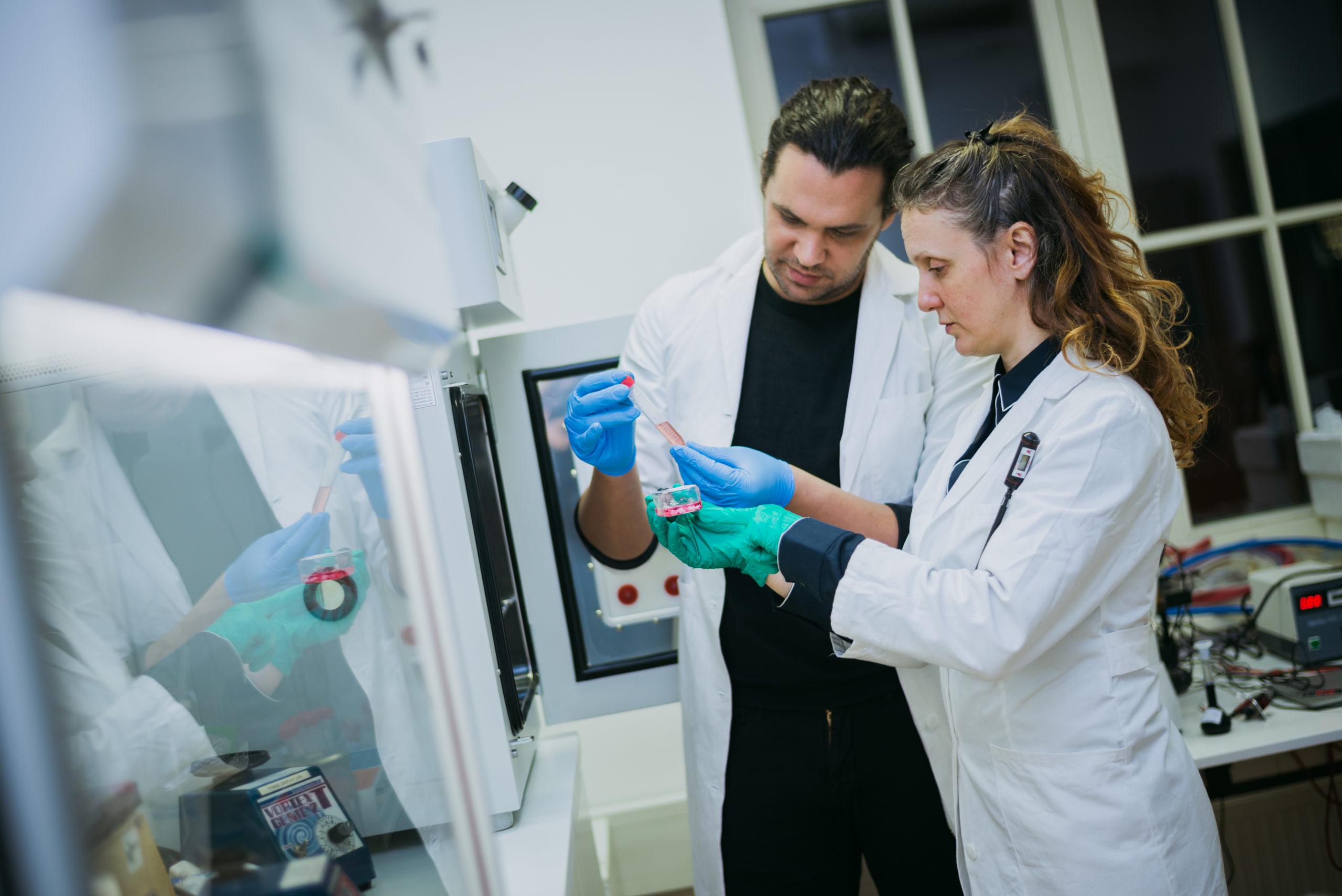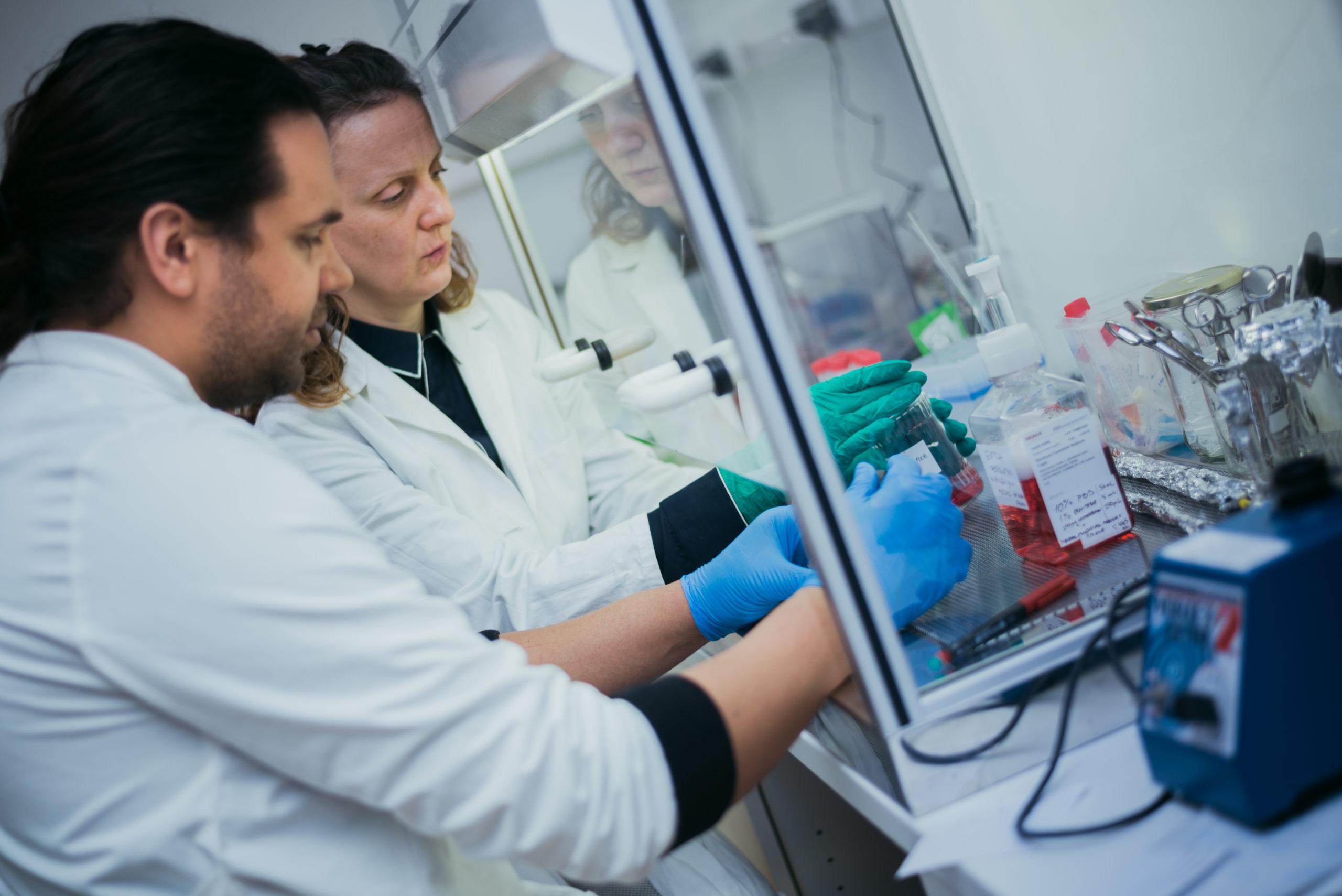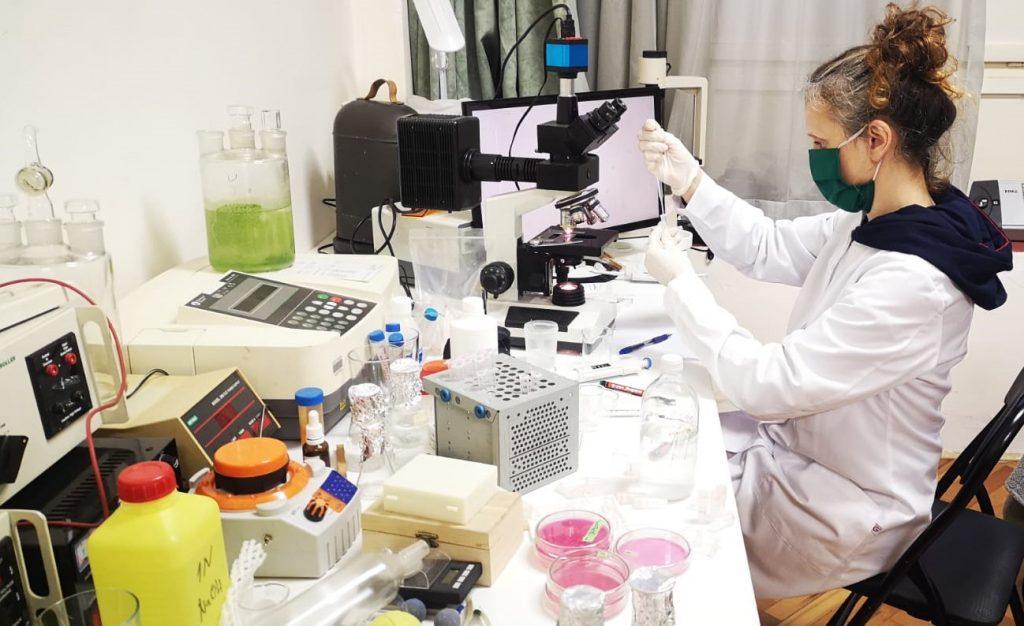The reProductive Narratives project uses an artistic metaphor to describe social phenomenologies related to the recognition and appreciation of the female body as a production facility of new life. In the art project, which is situated in a laboratory setting, the author Maja Smrekar experiments with her menstrual blood – a socially stigmatized female excrement – as material for artistic expression and later for reflective conversations, which take place after the laboratory work, in a public setting.
The artwork in the laboratory is carried out by Maja Smrekar together with scientist and artist Gjino Šutić. For the artwork, cells are isolated (differentiated) from Smrekar’s menstrual blood and then grown inside growth media that contain hormones extracted from the artist’s own urine. These procedures follow a research protocol published by the International Peace Maternity and Child Health Hospital, School Of Medicine, Shanghai Jiaotong University and collaborators in China (2016) that has shown the possibility of extracting somatic cells from menstrual blood. These extracted cells may show egg-like properties (specific protein structure), raising a myriad of possibilities and opening a space for speculation regarding the existing and imagined reproductive functions of the female body (NB: these egg-like cells have 2 sets of chromosomes and cannot be fertilized).
The female body has been used as a means of production in these times of populism, in which the significance of the nation increases, placing great value on the birth rate. Through such social regression, the female body has often been seen as the property of the state, law, and ideology.
The authors dedicate this project to all the Others out there. Through their deeply dedicated hands-on biohacking research & practice-based process, they warmly welcome further formations of strategic alliances to employ our hormones and bodily fluids as agents for utilizing pharmacological and technological tools as non-invasive (bio)technologies.
A further objective of the reProductive Narratives project is to engage and interact with citizens through dialogue, exchange of knowledge, as well as through co-development of open questions and their answers.
The reProductive Narratives project uses an artistic metaphor to describe social phenomenologies related to the recognition and appreciation of the female body as a production facility of new life. In the art project, which is situated in a laboratory setting, the author Maja Smrekar experiments with her menstrual blood – a socially stigmatized female excrement – as material for artistic expression and later for reflective conversations, which take place after the laboratory work, in a public setting.
The artwork in the laboratory is carried out by Maja Smrekar together with scientist and artist Gjino Šutić. For the artwork, cells are isolated (differentiated) from Smrekar’s menstrual blood and then grown inside growth media that contain hormones extracted from the artist’s own urine. These procedures follow a research protocol published by the International Peace Maternity and Child Health Hospital, School Of Medicine, Shanghai Jiaotong University and collaborators in China (2016) that has shown the possibility of extracting somatic cells from menstrual blood. These extracted cells may show egg-like properties (specific protein structure), raising a myriad of possibilities and opening a space for speculation regarding the existing and imagined reproductive functions of the female body (NB: these egg-like cells have 2 sets of chromosomes and cannot be fertilized).
The female body has been used as a means of production in these times of populism, in which the significance of the nation increases, placing great value on the birth rate. Through such social regression, the female body has often been seen as the property of the state, law, and ideology.
The authors dedicate this project to all the Others out there. Through their deeply dedicated hands-on biohacking research & practice-based process, they warmly welcome further formations of strategic alliances to employ our hormones and bodily fluids as agents for utilizing pharmacological and technological tools as non-invasive (bio)technologies.
A further objective of the reProductive Narratives project is to engage and interact with citizens through dialogue, exchange of knowledge, as well as through co-development of open questions and their answers.









